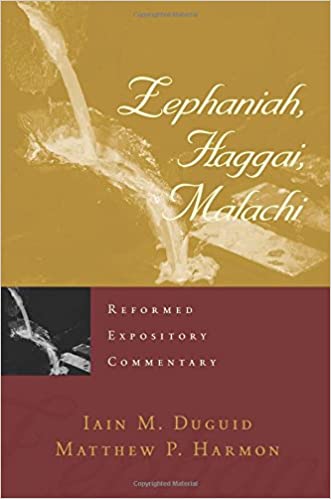A Book Review from Books At a Glance
by B. Jason Epps
Iain M. Duguid is a professor of Old Testament at Westminster Theological Seminary. Matthew P. Harmon is a pastor of Christ Presbyterian Church (ARP) in Grove City, Pennsylvania. In Duguid and Harmon’s commentary Zephaniah, Haggai, and Malachi, they specify in the introduction that their approach is thematic and Christocentric. Because of this particular approach, the commentary is divided into chapters covering large pericopes. The verse references for the commentary’s textual units only occur at the chapter level. Within the chapter, they separate sections by theme and idea. The commentary, therefore, tends to have a narrative and engaging focus.
This seems to be appropriate since their target audiences are pastors and the laity, creating a commentary that is devotional, practical, and expositional. Their writing, therefore, tends to be in an engaging and refreshing style, regularly including stories from contemporary life to illustrate points within the chapters, which help integrate the points into the readers’ lives. As such, this commentary almost reads like a devotional book.
This commentary does include an introductory chapter in which the authors discuss dates of each of the books, themes, and a simplified outline. In addition, when a new book is discussed, there is a page separating it from the previous section. Occasionally throughout the book, there are detailed footnotes on a limited number of issues.
The commentary also has the tendency to take what appears to be a whole Bible approach, seamlessly connecting biblical themes and ideas to each other, sprinkling in practical application. Because of this, the commentary seems to be holistically biblical more than Christocentric. They mention tie-ins to the New Testament and themes, but rarely seem to connect to Christ explicitly. This aspect is refreshing since some authors use the notion of Christocentrism to stretch biblical themes to fit Christ. This book, however, handles biblical themes appropriately.
This commentary is approachable, refreshing, and engaging. It seems to accomplish its purpose very well. For someone who desires a book to consult to answer specific questions about a particular verse or section of text, this book most likely would not be appropriate. If someone was looking for a book to help them engage with the minor prophets in a new and refreshing way, this book would fulfill that need.
B. Jason Epps
Midwestern Baptist Theological Seminary
